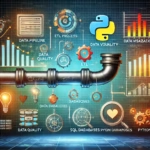Introduction
Artificial Intelligence (AI) and Machine Learning (ML) are some of the hottest fields today. Whether you want to build intelligent applications, automate tasks, or understand how AI models work, this roadmap will guide you from beginner to expert step by step.
If you already have a MERN stack background, transitioning into AI/ML will be much easier since you’re familiar with backend logic and JavaScript. In this guide, we’ll take you through an 8-12 month structured roadmap with free resources, hands-on projects, and deployment strategies.
📌 Phase 1: AI & ML Roadmap – Prerequisites (1-2 Months)
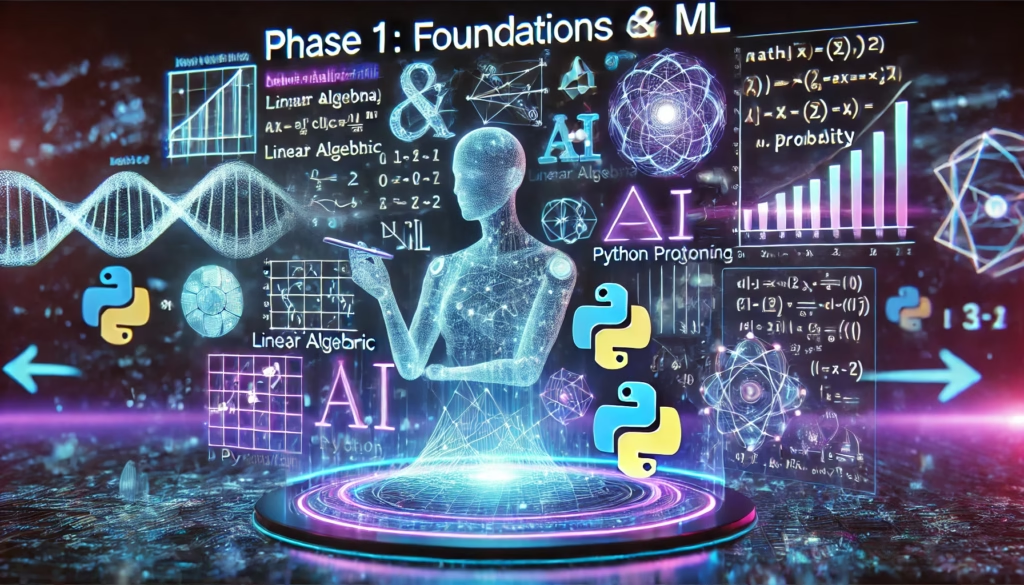
1. Mathematics & Statistics for ML
Before jumping into AI, understanding fundamental math concepts is crucial:
✅ Linear Algebra (Vectors, Matrices, Eigenvalues)
✅ Probability & Statistics (Mean, Variance, Bayes’ Theorem)
✅ Calculus (Derivatives, Partial Derivatives, Chain Rule)
📖 Resources:
🔗 Khan Academy – Linear Algebra
🔗 StatQuest YouTube Channel
2. Python for AI & ML
Most ML libraries are in Python, so you need to master:
✅ NumPy (Arrays, Matrix operations)
✅ Pandas (DataFrames, Data Handling)
✅ Matplotlib & Seaborn (Data Visualization)
📖 Resources:
🔗 Python for Data Science – FreeCodeCamp
🔗 NumPy & Pandas Tutorial
📌 Phase 2: Core Machine Learning (2-3 Months)
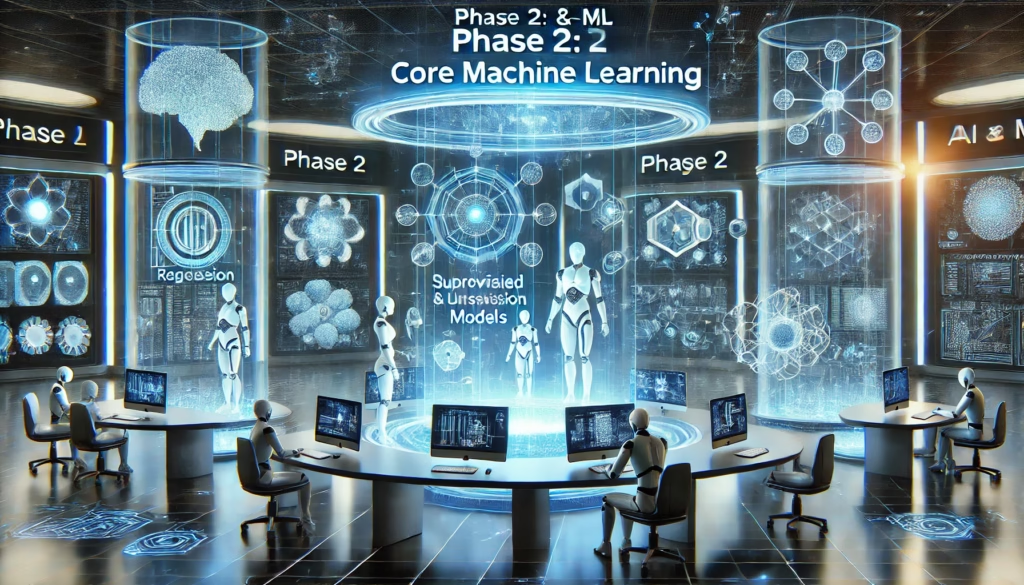
3. Supervised Learning (Predictive Models)
- Regression: Linear & Logistic
- Classification: Decision Trees, Random Forest, SVM
- Model Evaluation: Accuracy, Precision, Recall, F1-Score
📖 Resources:
🔗 Andrew Ng’s ML Course
🔗 Hands-On Machine Learning by Aurélien Géron
4. Unsupervised Learning (Pattern Detection)
- Clustering: K-Means, Hierarchical
- Dimensionality Reduction: PCA, t-SNE
📖 Resources:
🔗 DeepLearningAI – Clustering
📌 Phase 3: Deep Learning (2-3 Months)

5. Neural Networks & Deep Learning
- Perceptron & Activation Functions
- Backpropagation & Optimization (SGD, Adam)
📖 Resources:
🔗 Neural Networks from Scratch
🔗 Deep Learning with Python – François Chollet
6. Deep Learning Frameworks
- TensorFlow / PyTorch (Model Building)
- CNNs (Computer Vision)
- RNNs & LSTMs (Time-Series, Text Data)
📖 Resources:
🔗 TensorFlow 2.0 Course – FreeCodeCamp
🔗 Fast.ai – Deep Learning
📌 Phase 4: Real-World AI Applications (2-3 Months)
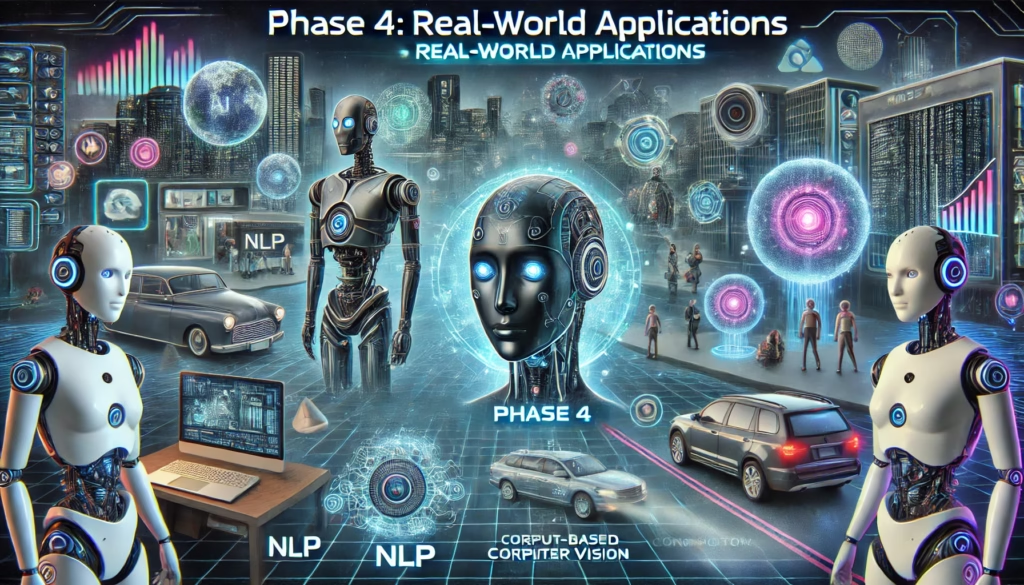
7. Natural Language Processing (NLP)
- Text Processing: TF-IDF, Word2Vec
- Transformers: BERT, GPT
📖 Resources:
🔗 Hugging Face NLP Course
8. Computer Vision (CV)
- Object Detection: YOLO, Faster R-CNN
- Image Segmentation: U-Net
📖 Resources:
🔗 OpenCV Python Tutorials
📌 Phase 5: AI Deployment & MLOps (1-2 Months)
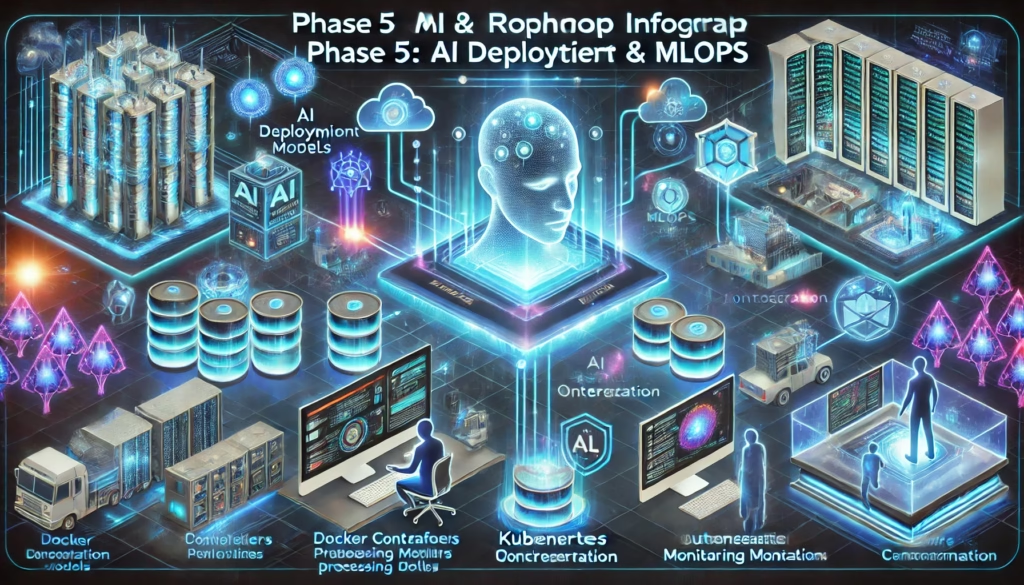
9. Deploying AI Models
- Flask/FastAPI (API Serving)
- Docker & Kubernetes (Model Deployment)
📖 Resources:
🔗 Deploy ML Models with Flask
10. ML in Production (MLOps)
- Model Monitoring & Logging
- AutoML & Hyperparameter Tuning
📖 Resources:
🔗 MLOps by Google Cloud
📌 Phase 6: Specialization & Advanced AI (Ongoing)
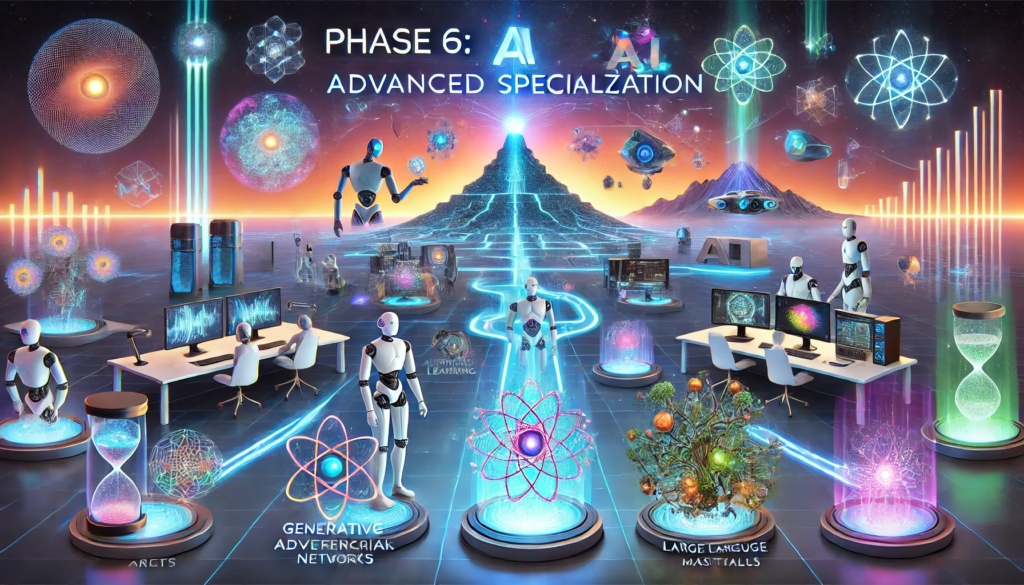
Once you’ve mastered the fundamentals, you can specialize in areas such as:
✔️ Reinforcement Learning (RL) – AI agents & decision-making
✔️ Generative AI (GANs, Stable Diffusion) – AI Art, Video generation
✔️ LLMs & Chatbots (GPT, LLaMA, RAG) – AI-powered assistants
📖 Resources:
🔗 DeepMind’s RL Course
🔗 GANs for Beginners – YouTube
🔥 Personalized Study Plan (8-12 Months)
📅 Week 1-4: Python, Math, Pandas, NumPy
📅 Month 2-3: Machine Learning Models (Regression, Classification)
📅 Month 4-6: Deep Learning (Neural Networks, CNNs, NLP)
📅 Month 7-8: AI Deployment (Flask, TensorFlow Serving)
📅 Month 9+: Specialization (LLMs, GANs, RL, MLOps)
🚀 Next Steps for You
🎯 Start with Python & Math – Since you know JavaScript, Python will be easy.
🎯 Build AI Projects – Work on Chatbots, Fraud Detection, Image Classifiers.
🎯 Participate in Kaggle Challenges – Get hands-on with real-world data.
🎯 Contribute to Open-Source AI – Gain practical experience.
📢 Final Thoughts
AI & ML are vast fields, but if you follow this structured roadmap, you’ll be ready to build real-world AI applications in 8-12 months. Stay consistent, work on projects, and keep exploring new trends like LLMs and Generative AI.
💬 Let me know in the comments which phase you’re at! 🚀😊
🎯 Call to Action:
- 🔔 Follow my blog for more AI/ML guides!
- ⭐ Join my AI/ML community for discussions & projects!
- 💡 Have questions? Drop them below, and I’ll help you out!

